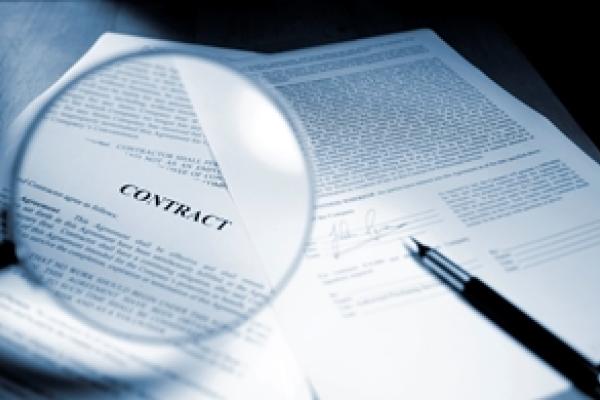
Steamship Mutual
Published: February 01, 2015
February 2015
updated 2016

In Shipowners' Mutual v Containerships Denizcilik (2015) the Commercial Court granted and maintained an anti-suit injunction against Charterers who had sued a P&I Club in Turkey. Charterers had tried to avoid the effect of the 'Pay to be Paid' rule by relying on a right of direct action against insurers under Turkish insurance law.
This is good news for P&I Clubs in a world where jurisdictions are increasingly permitting rights of direct action against insurers.
The facts
Charterers time chartered the vessel, a container ship, and employed it on a liner service between Turkey and North Africa. The vessel grounded off Mykonos and became a total loss. Cargo claimants brought claims under the Bills of Lading, which provided for Turkish law and which had been issued by Charterers.
Charterers started arbitration proceedings against Owners in London under the Charterparty. They also started proceedings against the P&I Club in Turkey, under Article 1478 of the Turkish Insurance Contract Law of 2012, which permits third parties to sue insurers directly in order to recover under the insurance contract between the insurer and the assured. The Turkish proceedings were a clear attempt to circumvent the 'Pay to be Paid' rule contained in P&I Club rules, whereby a Member can only be reimbursed for claims it has actually paid.
The P&I Club obtained an anti-suit injunction restraining Charterers from continuing the Turkish proceedings. The Court's reasoning is set out below, but, in brief, Teare J concluded that the anti-suit injunction should be continued.
The court's reasoning
The first point that the court had to decide, was whether the right of direct action under Turkish law was a right to enforce the contract between the Club and its Member or, whether it was an independent right of recovery.
Teare J held that the right of direct action was a right to enforce the contract between the Club and its Member. This was because the statute, as a matter of interpretation, referred back to the contract of insurance contained within the Club's terms for details such as the insured perils, limits, contract period and time bar.
The second point that the court had to decide was, whether to grant the anti-suit injunction, given that Charterers' claim under the Turkish statute was based on a right to enforce the insurance contract.
Teare J held that the Turkish proceedings were not in breach of the London arbitration agreement within the Club rules, as the case involved direct rights of action. In order for the anti-suit injunction to continue, the Turkish proceedings therefore had to be considered by the court as vexatious and oppressive.
Teare J held that the proceedings in Turkey were vexatious and oppressive because the effect would be to deprive the Club of its right to have claims brought against it in arbitration in London and because there was a real risk that the Club would not be able to rely on the 'Pay to be Paid' clause in the Club rules.
The implications
The decision highlights the problems faced by P&I Clubs, where other jurisdictions provide for rights of direct action against insurers, thus providing an opportunity to circumvent the 'Pay to be Paid' rule. Notable examples outside of Europe include most US states, Tunisia and Turkey.
Within Europe there has also been a move towards rights of direct action. Norway, Sweden, Denmark, Finland and Spain permit such action and not only within the context of compulsory insurance.
Closer to home, the Third Parties (Rights against Insurers) Act 2010, once in force, will provide for a right of direct action against insurers. However, there is an exception for marine insurance contracts, except in death or personal injury claims. This reflects the current position, as, in line with the warning given by Lord Goff in The Fanti and the Padre Island (No.2) (1990) that as a matter of policy, P&I Clubs should avoid relying on the 'Pay to be Paid' rule when dealing with death or personal injury claims, Club rules do not, subject to certain conditions, apply the 'Pay to be Paid' rule for such claims.
Several International Conventions also confer direct rights, notably within the context of pollution.
The decision in Shipowners' Mutual v Containerships Denizcilik is relevant for all P& I Clubs and is a significant reminder that the courts will act to protect a Club's right to rely on the provisions of its rules including the 'Pay to be Paid' rule. We understand, however, that this may go to appeal and we await seeing the outcome.
We are grateful to Mike Phillips, Partner and Head of Marine and International Trade, and Teah Sloan, Senior Associate, Marine and International Trade, of Stephenson Harwood LLP for this article.
Court of Appeal update - April 2016
Leave to appeal to the Court of Appeal was granted on both issues. In April 2016 the Court of Appeal decided the Charterers right to sue the Club was essentially a contractual right and, therefore, the Charterers were bound to accept that their claim was governed by English law and must be arbitrated in London. As to the anti-suit injunction there was no need for the Club to show vexatious or oppressive conduct because as a matter of principle the right approach was to ask whether there were good reasons why an injunction should not be granted; and there was not. Accordingly the anti-suit injunction was maintained. Permission to appeal to the Supreme Court was refused.


